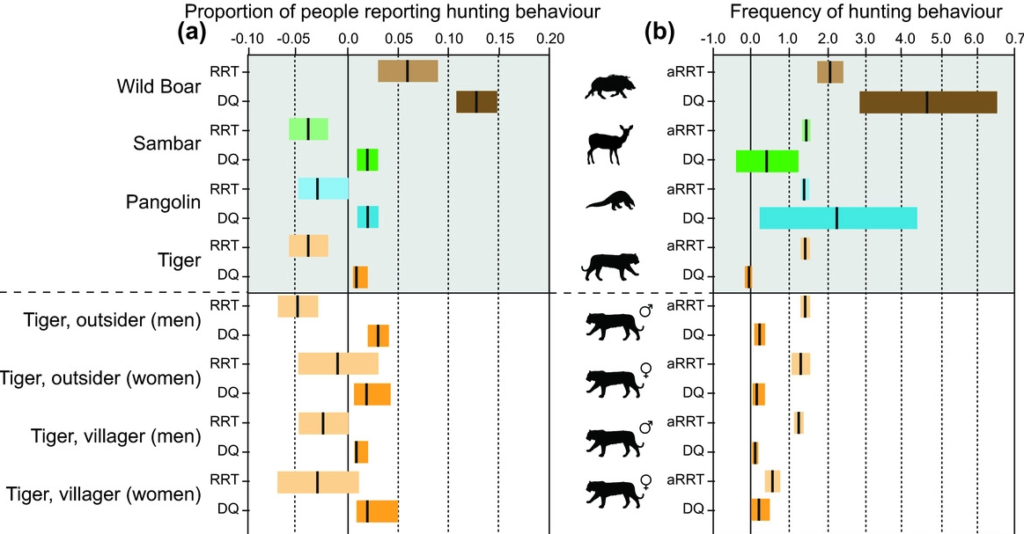Tolerance may lessen when wildlife adversely impacts people. Models from psychology can help elucidate how people make judgments, why they act accordingly, and whether beliefs and norms influence support for policy and intervention. Working in a globally important region for tigers, we estimated hunting prevalence for this endangered species and three sympatric taxa using methods for asking sensitive questions. We also investigated the relative strength of ethnicity and social-psychological predictors in influencing intention to hunt. Men’s behavioral intention and perceptions differed by species: pro-conservation values were most prevalent for tiger, weakest for wild boar. Perceived behavioral control was the strongest predictor of hunting-intention; affect and injunctive norms were also important. The prominence of affect in determining intention suggests increasing environmental knowledge is unlikely to curb hunting. However, existing norms could be leveraged to incentivise behavior change. Integrating behavior-change models into conservation science is crucial where strategies require changes in people’s actions.

St John, F. A. V., Linkie, M., Martyr, D., Milliyanawati, B., McKay, J., Mangunjaya, F., Leader-Williams, N., & Struebig, M. (2018). Intention to kill: Tolerance and illegal persecution of Sumatran tigers and sympatric species. Conservation Letters, 11(4), e12451.
